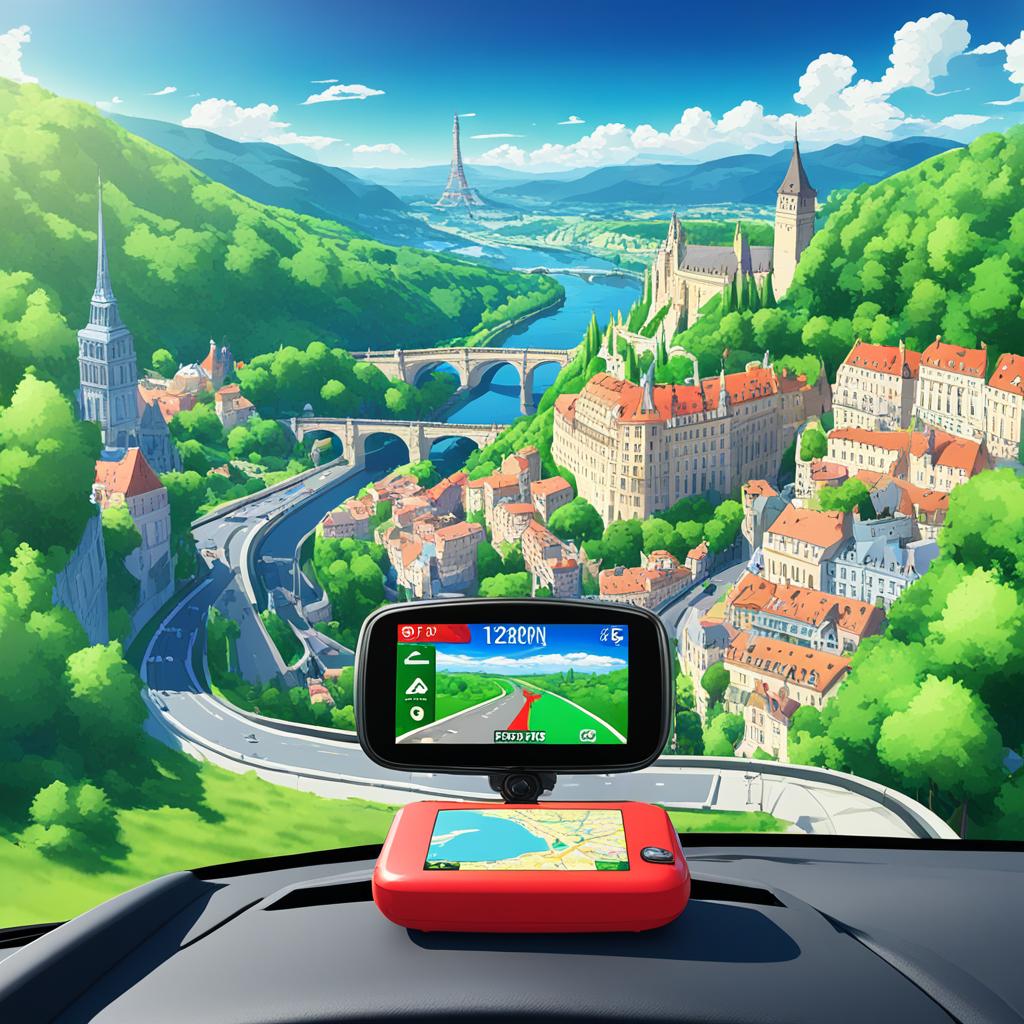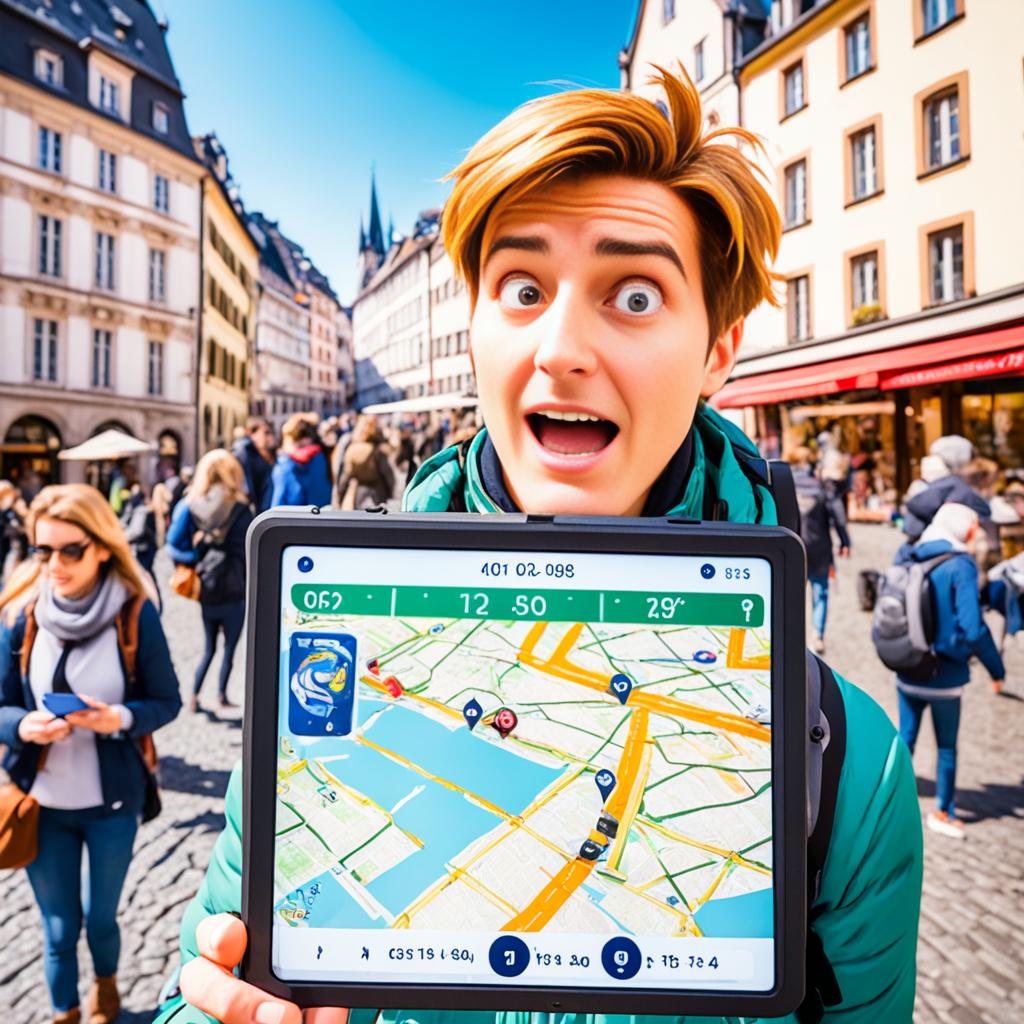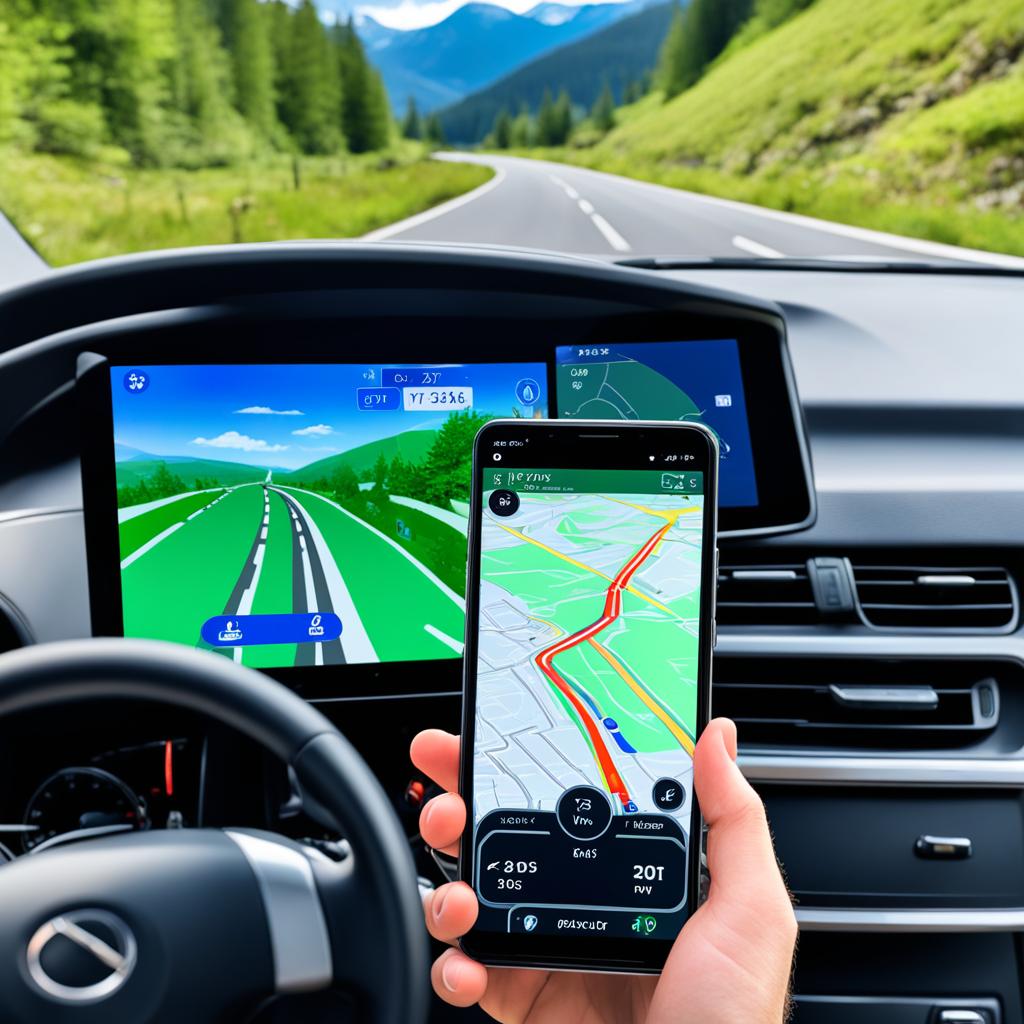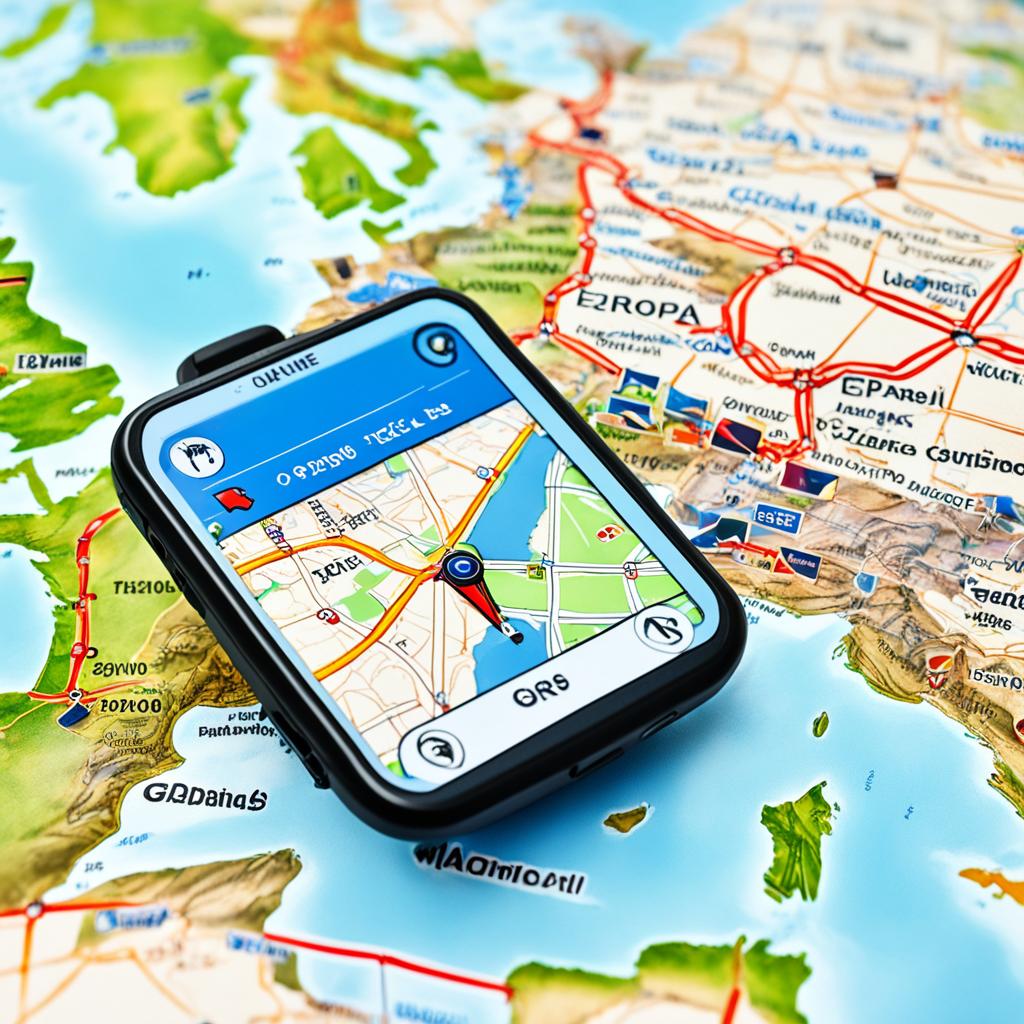Are you planning a trip to Europe and want a seamless navigation experience? Look no further! Finding the best GPS device can make your travel experience stress-free and enjoyable. Whether you’re exploring the historic streets of Paris, the winding roads of the Italian countryside, or the scenic landscapes of Scotland, having the right GPS can be a game-changer.
But with so many options available, how do you choose the best GPS for traveling in Europe? What features should you look for to ensure clear directions and hassle-free navigation? And is it more convenient to use a smartphone GPS or a dedicated GPS device? Allow us to guide you through the selection process and help you make an informed decision tailored to your needs.
In this article, we will explore the top GPS units for traveling in Europe, factors to consider when choosing a GPS rental, and the pros and cons of using smartphone GPS versus a dedicated GPS device. We’ll also provide tips on selecting the best GPS navigation device for Europe and share our recommendations for a stress-free journey.
So, are you ready to discover the best GPS options for your European adventure? Let’s dive in and find the GPS device that will enhance your travel experience and ensure you never miss a turn!
Factors to Consider When Choosing a GPS Rental

When planning your trip to Europe, one of the essential items to consider is a reliable GPS rental. The right GPS unit can make your navigation experience seamless and stress-free. To ensure you choose the best GPS rental for your needs, consider the following factors:
- Latest Units: Look for GPS rentals that feature the latest technology and functionality. Newer models often offer advanced features, improved accuracy, and up-to-date maps.
- Durability: You’ll want a GPS unit with a durable casing that can withstand the rigors of travel. Opt for rentals with shock-resistant and waterproof designs to ensure they can handle rough conditions.
- Readability: Clear and easy-to-read directions are crucial for a smooth journey. Choose a GPS rental with a high-resolution screen and adjustable brightness, allowing for optimal visibility in varying lighting conditions.
- Volume: Adequate volume is essential, especially when driving in busy environments or with the windows down. Ensure the GPS unit has sufficient volume to hear instructions clearly, avoiding missed turns or distractions.
- Portability: Opt for a lightweight and compact GPS rental that’s easy to carry and mount in your rental vehicle. Portability allows for hassle-free transportation and flexibility in usage.
By considering these factors, you can select a GPS rental that meets your specific needs and enhances your travel experience in Europe.
| Factors to Consider | Recommended Features |
|---|---|
| Latest Units | Newer technology, up-to-date maps, advanced functionality |
| Durability | Shock-resistant casing, waterproof design |
| Readability | High-resolution screen, adjustable brightness |
| Volume | Adequate sound volume, clear instructions |
| Portability | Lightweight, compact and easy to carry |
Top GPS Units for Traveling in Europe

If you’re planning to travel in Europe and want a reliable GPS unit to ensure seamless navigation throughout your journey, consider these top GPS units:
-
Garmin Nuvi 270
With full coverage of both Europe and the United States, the Garmin Nuvi 270 is considered the best GPS unit for traveling in Europe. Its clear readability and excellent volume make it an ideal companion for exploring unfamiliar roads.
-
TomTom Via 1505
The TomTom Via 1505 is another highly recommended GPS unit for European travel. It offers lifetime free map updates, ensuring that you always have the most accurate and up-to-date navigation information. The split screen function allows you to view multiple details at once, enhancing your driving experience.
-
Magellan RoadMate 5045T
The Magellan RoadMate 5045T is a GPS unit that combines high-end comfort with reliable navigation features. Although it may have limited map updates compared to other models, its user-friendly interface and comfortable design make it a popular choice among travelers.
-
Garmin Nuvi 2455 LMT
If you’re looking for a budget-friendly option, the Garmin Nuvi 2455 LMT is worth considering. While it lacks certain advanced features like traffic updates, it provides reliable navigation at an affordable price. However, keep in mind that the volume may be slightly lower compared to the Nuvi 270.
These top GPS units offer a range of features and capabilities to enhance your European travel experience. Whether you choose the Garmin Nuvi 270 for its comprehensive coverage or opt for the TomTom Via 1505 for its lifetime free map updates, having a reliable GPS unit will ensure a stress-free and enjoyable journey.
Using Smartphone GPS vs. Dedicated GPS Device in Europe

When it comes to navigating through Europe, you have two main options – using your smartphone’s GPS or relying on a dedicated GPS device. Each option has its advantages and disadvantages, so it’s important to consider your specific needs and preferences.
Smartphone GPS relies on cellular data to download maps and provide real-time navigation. This means that you need a stable internet connection throughout your journey, which might not always be possible in remote or rural areas. Additionally, using smartphone GPS can drain your battery faster, especially if you’re relying on other apps or making calls.
However, smartphone applications now offer offline maps, allowing you to pre-download maps and access them without an internet connection. This can be a game-changer, especially if you’re concerned about using excessive cellular data or traveling to areas with limited connectivity.
Dedicated GPS devices, on the other hand, store pre-downloaded maps internally and do not rely on cellular data. This makes them ideal for areas with poor cell service or confusing road networks. Dedicated devices are often mounted on the dashboard, providing better visibility and minimizing distractions. They also tend to have powerful speakers, ensuring clear and audible directions.
Of course, choosing between a smartphone GPS and a dedicated GPS device also depends on other factors such as memory and battery life. Smartphones have limited memory compared to dedicated devices, which can store extensive map data. Similarly, dedicated devices often have better battery life since they are designed specifically for navigation purposes.
Ultimately, the choice between smartphone GPS and a dedicated GPS device boils down to your personal preferences and usage scenarios. If you have a reliable data plan, prefer the convenience of using your smartphone, and are confident in the availability of internet connections, smartphone GPS can be a viable option. However, if you prioritize offline maps, better visibility, and reliable navigation in areas with poor cell service, a dedicated GPS device might be a better choice.
Explore the table below for a detailed comparison between smartphone GPS and dedicated GPS devices:
| Factor | Smartphone GPS | Dedicated GPS Device |
|---|---|---|
| Offline Maps | Available with pre-downloaded maps | Pre-loaded maps, no internet required |
| Navigation Options | Dependent on cellular data | Internal storage, no reliance on internet |
| Cellular Data | Uses cellular data for map downloads and real-time navigation | No reliance on cellular data |
| Memory | Limited memory for map storage | Ample storage for extensive map data |
| Battery Life | Can drain battery faster, especially with concurrent app usage | Better battery life, optimized for navigation |
Choosing the Best GPS Navigation Device for Europe
When planning your trip to Europe, it’s essential to have a reliable GPS navigation device to ensure a smooth and stress-free journey. Whether you decide to use a rental car GPS or bring your own portable device, there are several factors to consider.
Rental car GPS systems are readily available in most European car rentals. While convenient, it’s essential to note that the features and capabilities of these systems may vary. If you prefer to have full control over your navigation experience, bringing your own portable GPS device is recommended.
When it comes to portable GPS devices, Garmin, TomTom, and Magellan are the leading manufacturers to consider. Garmin offers a wide range of devices with updated maps specifically designed for Europe. Their devices are known for their reliability and user-friendly interface.
TomTom, on the other hand, is renowned for its more affordable options. They provide reliable navigation devices that offer accurate directions and essential features at a budget-friendly price.
Magellan is another noteworthy brand that offers comfortable and feature-packed portable GPS devices. While their devices might not have the same frequency of map updates as Garmin or TomTom, they are known for their high-end navigation capabilities.
When making your decision, it’s crucial to consider the cost, ease of use, map updates, and mounting options. Determine your budget and prioritize the features that are most important to you for a seamless navigation experience throughout your European journey.
Comparison of GPS Navigation Devices
| Brand | Features | Map Updates | Price Range |
|---|---|---|---|
| Garmin | Reliable, user-friendly interface | Regular updates for Europe | $$ – $$$ |
| TomTom | Affordable, accurate directions | Regular updates for Europe | $ – $$ |
| Magellan | High-end capabilities, comfortable | Less frequent updates | $$ – $$$ |
Making the Decision on GPS for Europe
When it comes to choosing the right GPS for your travels in Europe, convenience and price are key factors to consider. For the best GPS navigation experience, it is recommended to bring along a portable GPS device as your primary tool, and have a smartphone with offline maps as a backup. This way, you can ensure seamless navigation aid throughout your journey.
However, if you don’t have access to a portable GPS device, using your smartphone with offline maps or a data plan can be a viable alternative. Many smartphone applications now offer offline maps, allowing you to navigate even without an internet connection. This option provides flexibility and cost-effectiveness.
To make the right decision, take into account the cost of the GPS options available, your specific navigation needs, and your familiarity with the devices. Portable GPS devices, such as those from Garmin, TomTom, and Magellan, offer dedicated navigation features and updated maps for Europe. On the other hand, using a smartphone as a GPS can be more convenient if you are already comfortable with its functionalities and have access to offline maps.
Consider additional features, such as real-time traffic information, to enhance your navigation experience. Ultimately, the choice of GPS for Europe depends on your individual preferences and budget. Find the option that provides the right balance of convenience, price, and functionality to ensure a stress-free and enjoyable journey.


